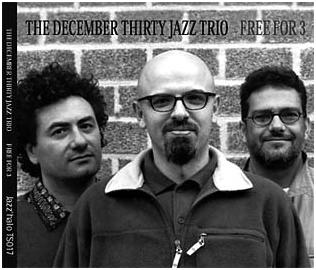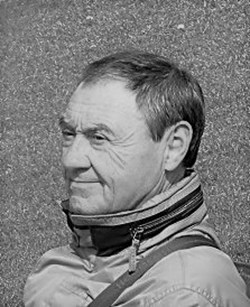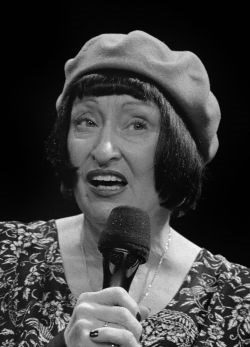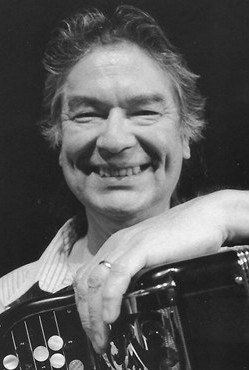TS017
Free For 3
December Thirty Jazz Trio
"The December Thirty Jazz Trio spreidt een ongekende dynamiek ten toon, waaraan alle drie de muzikanten met inventief en vaak ook humoristisch spel een gelijkwaardige bijdrage leveren."
Mischa Andriessen

THE DECEMBER THIRTY JAZZ TRIO – FREE FOR 3
De Werf Suite
Bruggerie To De Werf
Before The New Street
The New Street In Old City
Mons Inspirations
Ricercare Con Motto *
To Janina Davidovic
Novelle Siciliana Per Piano Forte Solo In Forma Di Ballata *
La Tentation Suite
Basic Music
Hommage
Pyramides
All compositions by the December Thirty Jazz Trio except tracks 3, 5 and 6 by Giorgio Occhipinti and track 9 by Francesco Branciamore
Giorgio Occhipinti, piano
Giuseppe Guarrella, double bass
Francesco Branciamore, drums
recorded at De Werf Brugge on September 15, 2001 (except * on September 13, 2001 at Auditorium Abdel Dubois Mons and ° on September 12, 2001 at La Tentation Brussels) by Jean-Marc Foussat
Photography: Jacky Lepage
SOME REVIEWS:
“Er zijn critici die zeggen dat alle pianotrio’s op elkaar lijken en eerlijk gezegd denk ik dat ook wel eens. Dat vooroordeel is de laatste weken hevig onder vuur komen te liggen toen ik de cd’s van Vein, Dan Weiss Trio en dit Italiaanse gezelschap te beluisteren kreeg. The December Thirty Jazz Trio spreidt een ongekende dynamiek ten toon, waaraan alle drie de muzikanten met inventief en vaak ook humoristisch spel een gelijkwaardige bijdrage leveren. Pianist Giorgio Occhipinti en drummer Francesco Branciamore kunnen beide ongemeen fel maar ook heel subtiel te werk gaan. Bassist Giuseppe Guarella overtuigt vooral met zijn bijzondere strijktechniek. Het trio speelt af en toe onvervalste free jazz in de hoogste versnelling met bijbehorend kabaal en razende notenreeksen, maar ook daarin blijft het zoeken naar verrassende harmonieën hun prioriteit. Daarbij neemt de groep vaak genoeg gas terug om het over een fijn zinniger boeg te gooien. “Free for 3” bestaat uit drie suites die elk weer uit drie composities bestaan. Elke suite is vernoemd naar de drie zalen waar deze live opnamen tot stand zijn gekomen; De Werf in Brugge, La Tentation in Brussel en het auditorium Abdel Dubois in Mons. De opnamen dateren uit 2001.”
Mischa Andriessen op jazzenzo.nl, 01/2007
“GIORGIO PACCORIG - My Mind is on the Table (Splasc (H) Records) DECEMBER THIRTY JAZZ TRIO - Free For 3 (Jazz'halo TS 017) Blood still pulses through the body of the traditional jazz piano trio. But, as these two Italian groups prove, you have to give the corpus a POMO vitamin and mineral transfusion for the physique to be as lively as it was in the past. Each band does that here in a different way. Pianist Giorgio Pacorig's crew, completed by bassist Giovanni Maier and drummer Zeno de Rossi does so by mixing mid-tempo originals with sprightly recreations of modern standards and one giveaway salute. Each of the players also has enough work in other aggregations to make this session a breezy busman's holiday. December Thirty -- reason for name unknown -- has been first priority among many others for its trio members since 1989. First and foremost a Sicilian band, it brings the islanders' sardonic view of the world to the fore, expressed here in three suites of all- original compositions, some of which are a little more jaundiced than celebratory. Two Ornette Coleman tunes -- "Peace" and "WRU" -- recast as freebop romps may give you an idea of what Pacorig's trio is up to, but the real giveaway is the pianist's own composition, "The legendary Hasaan", celebrating the eccentric Philadelphia pianist. Hasaan Ibn Ali made only one album, in 1964, but it was one that featured drummer Max Roach and bassist Art Davis. Both those men were on board because Hasaan created a personal accommodation with the bop ethos -- and the Pacorig three do the same. Played andante, with cascading chord patterns and a strong dramatic sharp timbre, the tines original twists and turns demonstrate how many trio pieces may pass neo-con inspection, yet also offer up subversive pleasures. Take "Downtown" -- not the Petula Clark hit, thank goodness. It's a faster-than-usual ballad, where an expansive, mutant polonaise is given a Latinesque twist. Pacorig's two-handed approach makes the stately dance rhythms confirm to standard jazz piano trio beat -- imagine Red Garland or Bill Evans -- even if the tempo may be a little slower than acceptable. Maier -- who has also recorded with American reedist Chris Speed -- produces a bass solo that in temperament fits ball-in-socket bass with Pacorig's work, like Paul Chambers' did with Garland. "L'orso"["The Bear'], another composition from the Trieste-born pianist, plays to his varied background, which has ranged from accompanying singer Elisa to jazz-world music gigs with the likes of drummer U.T. Ghandi and woodwind player Gianluigi Trovesi. Lyrical, with harmonically sophisticated arpeggios at its core, the tune snakes around in-and-out of impressionism, with one section that almost sounds like galloping cowboy music. Pacorig's command of dynamics allows him to plays as softly as needed, sometimes producing remarkable full-keyboard glissandos; at other times superimposing notes one on top of one another; and in still others clipping the keys in double time. Drummer De Rossi, whose playing experiences include Klezmer, straight out swing and contemporary jazz CDs with American like Speed and accordionist Ted Reichman, makes his rim shots extend Pacorig's tinkling piano notes on this tune. Meanwhile, his tap-dancing tempo subtlety on "WRU" joins with a spectacular, percussive double-stopping Maier display and the pianist's chording to transform the Coleman line into a foot-tapping swinger. Unlike Pacorig's freebop romp, Free for 3 seems to have been conceived with a higher purpose since the suites were, in the main, put together to be performed at a series of Belgium jazz festivals. In contrast to some festival fodder, however, the three performers don't let the momentousness of the occasion mute their sense of humor. Case in point is the final number of the Mons Inspirations: "Novelle Siciliana Per Piano Forte Solo In Forma Di Ballata," written by pianist Giorgio Occhipinti. Occhipinti, who has worked with genre jumpers like bassist Joëlle Léandre and trumpeter Pino Minafra, knows about classical music by writing for his cello-heavy Octet. But he also knows how to burlesque the process. Sounding as if he's playing an unaccompanied clavichord, here he creates his own version of the popular 18th century, minor key instrumental piece that was supposed to be derived from a traditional Sicilian dance, then mixes it with 14th century Italian music. Coming out as if it was performed on a player piano, he repeats the head quicker and quicker, adding glissandos and bearing down on the keyboard. Recurring blues notes are mixed in to show that jazz-improv is involved, with the coda a series of quiet left handed sweeps. "To Janina Davidovic," which precedes that number, is a tune alive with delicate impressionistic harmonies that seem to move from adagio to largo. As Occhipinti creates a sort of mid-tempo, multi-noted, quasi-ragtime, the syncopation speeds up to double and triple time. Meanwhile, the rhythm section creates the prototypical jazz beat, with drummer Francesco Branciamore -- who recently released an excellent CD with his Perfect Quartet -- delicately exercises his drums as if he was wiping them with a cloth, while bassist Giuseppe Guarrella generates a woody, fleet-fingered intro. Guarrella, whose playing partners have included saxists Mario Schiano and trombonist Paul Rutherford, also showcases his skills on "Before The New Street" in the first suite. Here, his string curvatures take on a classical tincture as tiny treble scratches are succeeded by sweeping arco notes from the bass bottom, relieved by the occasional strummed section that take on a rhythm of its own. Later as he replicates aviary-style chirps from his highest strings, Occhipinti sprays grace notes from the keyboard and Branciamore replicates wooden sounding clucks and clanks. By the final track, though, the percussionist has finessed a powerful climax, building up the tension with hearty swats on the crash cymbal and bass drum and exhibiting sounds that appear to be exploding from a cannon. Throughout, the pianist can go from a Morse code of extended single note pressure to swift insect-like arpeggios in a flash, the drummer can elasticize time with feather light brush work or extend it with accented cymbal splashes. All the while, the bassist come up with perfectly proportioned bass lines to fit each particular situation. Should more bands like this extending piano trio literature, it could end up lasting as many centuries as the Siciliana and the Ballata.”
Ken Waxman in Jazzreview.com
“It is said that time and tide wait for no man. Time, however, has waited for this piano trio. The group's first recording, The Street One Year After, was released in 1991. Since then they have released two more, both in the last decade. As for the tide, it still roars in their favor. The brand new music on Free For 3 feels electrifying, emerging from the heartland of musicians who have an apparent affinity with each other. It is no secret that despite the sporadic trips to the studio, they have been playing concerts together. This, perhaps more than anything else, continues to make them a cohesive force. Freedom is the essence of its expression, but in seeking it the trio does not always desert melody. These players build and expand and often mould an inventive concept out of disparate strands. Pianist Giorgio Occhipinti leads the charge on the first tune, building his story through a scurrying welter of notes that gather momentum, and then, as bass and drums stir the action, explode in euphoric frenzy. The last notes come from Giuseppe Guarrella's bowed bass, which turns out to be the harbinger for “Before the New Street,” where his opening phrases are short and thick. As he goes into a more detailed statement opening the tonality of the bass, drummer Francesco Branciamore tackles time with offbeat phrases and Occhipinti slowly but surely ups the tempo. The third segment is for Branciamore, his accents on the cymbals and snares and his trapping testifying to an unique aesthetic. And then it is melody time, pronounced in a blistering, but nonetheless straight ahead manner. Ochhipinti finds himself in exceptional form on the solo “Novelle Siciliana Per Piano Forte Solo In Forma De Ballata,” his right hand a messenger for delectable melodic resolutions, his left stabbing chords with a deft authority. The third suite is stunning in its intensity without being overwhelming. Once again the clean lines bridge the evolution of the music and make it compelling, as on “Hommage,” where the bent notes and orchestration that Guarrella evokes through arco lead to the calmer pianism of Occhipinti. The equation is altered on “Basic Music,” which emerges imaginatively through the interweaving of the soundscapes each constructs. This one was well worth the wait.”
Jerry D'Souza in allaboutjazz.com (10.2003)
“Costituitosi il 30 dicembre del 1988, il December Thirty Jazz Trio è oggi uno dei gruppi più rappresentativi della scena jazzistica siciliana proiettata nel panorama internazionale. Il quinto lavoro della formazione, registrato dal vivo nel 2001 al festival belga di Brugges, fotografa uno dei momenti maggiormente creativi nella storia del gruppo. Articolandosi in forma di tre ideali suite, il progetto rintraccia la pratica della composizione istantanea, fitta di trame e slanci improvvisativi di notevole valenza colloquiale. Nella prima trance di De Werf Suite, la tensione emotiva esplode convulsa e intensa percorrendo le veloci linee del pianismo di Occhipinti. Da queste felici e coinvolgenti intemperie, la ritmica sviluppa altresì un discorso di confronto-scontro regalando il massimo della consistenza creativa tra repentini cambi di rotta e intuitive colloquiali sospensioni del tempo. Guarrella, professionista di un archettato profondo e liricissimo, apre l’episodio di Before The New Street sviluppando melodie concentriche, intense di dramma e acuta spazialità. L’abilità vulcanica di Branciamore nell’intessere incisive e robuste poliritmie completano il quadro di una superba prova del trio che raccoglie i meritatissimi consensi della platea.”
Gianmichele Taormina in Jazzit (Italia), Marzo 2004
“L’esplosione di energia del primo brano di questo Cd ci informa di un trio agguerrito, in posesso di un vocabulario versatile, assertivo. Vanta quattrordici anni di attività ma quanti se n’erano accorti? Anche quest’opera densa, ambiziosa, rischia di non essere adeguatamente notata, uscendo per un’indipendente belga. Occhipinti, Guarrella e Branciamore, tra le avanguardie del jazz mediterraneo, mettono a frutto la pluriennale intensa per scavare a fondo la scorza di un jazz aperto a diversi stimoli, dalle pulsioni della scuola free alle elaborazioni strutturali della tradizione europea, fino alla ballad melodica opportunamente trasfigurata. Occhipinti è pianista in grado di aggredire la tastiera cosi come di blandiria con tocchi morbidi, felpati. Certo privilegia un andamento destrutturato, con tormenti intervallari inarrestabili (The New Street In Old City) che riportano all’astrattismo che per esempio Chick Corea esibiva decenni fa nelle sedute con Braxton, Holland e Altschul. Ma possiede una maturità interpretativa completa, la sapienza del gioco di squadra che gli evita di eccedere, lasciando il giusto respiro alle sortite di basso e batteria. Guarrella lavora molto con l’archetto, con striature profonde. Branciamore è in perenne combustione percussiva ma sa quando è il momento di pennellare e di rallentare la tensione. Si sarà capito che il trio non sceglie la tradizione della strada maestra, guardando invece alle evoluzione e alle commistioni che in questi anni hanno portato il jazz a confrontarsi con molte altre musiche, a immaginare ulteriori utopie. Esemplare il questo senso è To Janina Davidovic, con i suoi larghi spazi iniziali, che poi si restringono in un cambio di passo folgorante, inatteso. La Tentation Suite spinge invece su un’improvvisazione radicale: cordiera del pianoforte spesso in primo piano, giochi d’equilibrio sugli armonici del basso, il tutto però dosato con fermo controllo della materia.”
S.M. in Musica Jazz (01/2004)



Francesco Branciamore, Giorgio Occhipinti and Giuseppe Guarrella © Jacky Lepage

Giorgio Occhipinti with Veerle Vermeulen at De Werf Brugge © Jacky Lepage
In case you LIKE us, please click here:

Foto © Leentje Arnouts
"WAGON JAZZ"
cycle d’interviews réalisées
par Georges Tonla Briquet

our partners:



Hotel-Brasserie
Markt 2 - 8820 TORHOUT

Silvère Mansis
(10.9.1944 - 22.4.2018)
foto © Dirck Brysse

Rik Bevernage
(19.4.1954 - 6.3.2018)
foto © Stefe Jiroflée
Philippe Schoonbrood
(24.5.1957-30.5.2020)
foto © Dominique Houcmant

Claude Loxhay
(18.2.1947 – 2.11.2023)
foto © Marie Gilon

Pedro Soler
(8.6.1938 – 3.8.2024)
foto © Jacky Lepage

Sheila Jordan
(18.11.1928 – 11.8.2025)
foto © Jacky Lepage
Raúl Barboza
(22.5.1938 - 27.8.2025)
foto © Jacky Lepage
Special thanks to our photographers:
Petra Beckers
Ron Beenen
Annie Boedt
Klaas Boelen
Henning Bolte
Serge Braem
Cedric Craps
Luca A. d'Agostino
Christian Deblanc
Philippe De Cleen
Paul De Cloedt
Cindy De Kuyper
Koen Deleu
Ferdinand Dupuis-Panther
Anne Fishburn
Federico Garcia
Jeroen Goddemaer
Robert Hansenne
Serge Heimlich
Dominique Houcmant
Stefe Jiroflée
Herman Klaassen
Philippe Klein
Jos L. Knaepen
Tom Leentjes
Hugo Lefèvre
Jacky Lepage
Olivier Lestoquoit
Eric Malfait
Simas Martinonis
Nina Contini Melis
Anne Panther
France Paquay
Francesca Patella
Quentin Perot
Jean-Jacques Pussiau
Arnold Reyngoudt
Jean Schoubs
Willy Schuyten
Frank Tafuri
Jean-Pierre Tillaert
Tom Vanbesien
Jef Vandebroek
Geert Vandepoele
Guy Van de Poel
Cees van de Ven
Donata van de Ven
Harry van Kesteren
Geert Vanoverschelde
Roger Vantilt
Patrick Van Vlerken
Marie-Anne Ver Eecke
Karine Vergauwen
Frank Verlinden
Jan Vernieuwe
Anders Vranken
Didier Wagner
and to our writers:
Mischa Andriessen
Robin Arends
Marleen Arnouts
Werner Barth
José Bedeur
Henning Bolte
Paul Braem
Erik Carrette
Danny De Bock
Denis Desassis
Pierre Dulieu
Ferdinand Dupuis-Panther
Federico Garcia
Paul Godderis
Stephen Godsall
Jean-Pierre Goffin
Claudy Jalet
Chris Joris
Bernard Lefèvre
Mathilde Löffler
Claude Loxhay
Ieva Pakalniškytė
Anne Panther
Etienne Payen
Quentin Perot
Jacques Prouvost
Jempi Samyn
Renato Sclaunich
Yves « JB » Tassin
Herman te Loo
Eric Therer
Georges Tonla Briquet
Henri Vandenberghe
Peter Van De Vijvere
Iwein Van Malderen
Jan Van Stichel
Olivier Verhelst



